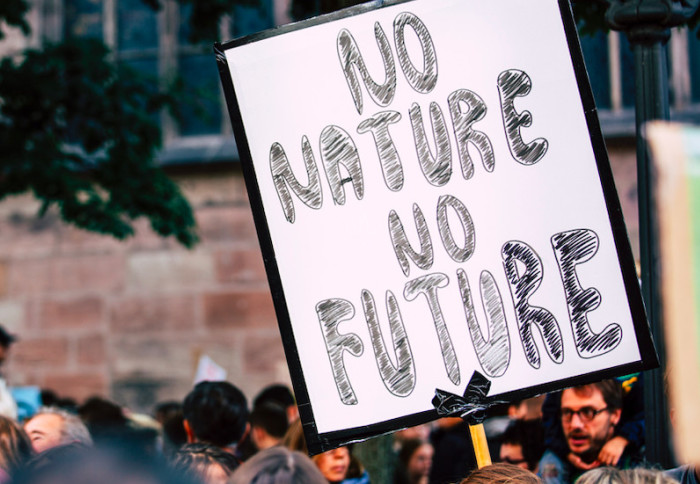We’re going to see more climate lawsuits brought against governments

Photo by Markus Spiske
While leaders fail to act on climate change, children and others are using the law to seek justice for their futures, says Karen Makuch.
Climate change threatens many of our basic human rights, such as the right to food, the right to water, and significantly, the right to life.
The rights of children, women, other marginalised groups, and people in the Global South, are principally at risk, since they have less power and means to protect themselves from climate change.
As leaders fail to act on the climate emergency, and renege on their responsibilities to protect such rights, a growing number of people are using the law and taking matters into their own hands.
We asked Karen Makuch, Senior Lecturer in Environmental Law in the Centre for Environmental Policy, to tell us more.
What do you work on and why?
I work on international environmental law and human rights, and I’m specifically interested in the environmental rights of children and other marginalised groups.

When I was a child, I went to a school where lots of children weren’t well looked after. I ended up noticing the marginalisation of children, and how people in power use it unfairly. Right now, those in power who do nothing about the climate emergency are ignoring the rights of children to a quality future.
The environment belongs to everybody – it is the global commons, the common heritage of human kind. Why should some people benefit economically from causing harm to other people and impacting on their right to life, to health, to security of person? It’s amoral, unjust, and inequitable.
How are environmental laws and human rights linked?
Environmental laws are fundamental to our existence on this planet. Human rights, which are interlinked with environmental rights and laws, are the linchpins of civil society. In particular, they regulate the power between governments and individuals.
People’s lives are being affected by climate change, and that means specific human rights are being undermined or ignored, such as the right to health, to life itself, to water, to self determination, to security of person. These are all fundamental rights.
Can the law help address climate change?
People’s lives are being affected by climate change, and that means specific human rights are being undermined or ignored Karen Makuch
The law is fundamental to challenging climate change, because it can help regulate behaviours. When people don’t respect the idea that water, climate, the atmosphere, are effectively held in trust between generations, the law needs to step in.
As communities, we have put our trust and vote into governments who need to govern on these issues. Either they need to govern by following the rules, or we need to create new legislation to regulate the way they address climate change.
Do you see more law suits against government inaction on climate change?
Yes. We are seeing an increasing number of climate related law suits being brought against governments and private actors, such as oil companies.
For example, in a groundbreaking case in the Netherlands, citizens successfully took the Dutch government to court, demanding they take swifter and more concerted emissions reduction action.
We are seeing other cases that may not be successful in the court, but which are helping to raise awareness and send a powerful message that citizens are taking the climate emergency seriously, and are willing to take collective action.
Will we see more children using the law in this way?

Yes, there have been 33 youth-centred climate cases so far, and I think we are going to see the environmental rights of children take a more prominent role.
For example, we’ve seen children in Australia petition the courts to prevent a new coal mine being opened, based on the impact the carbon emissions would have, and children in Portugal affected by wildfires, taking the EU to court over its failure to act.
Children are not stupid – they have competency, and I think they ought to have agency so they can be involved in demanding people in power safeguard their futures. Children should not be burdened though with fixing the mess created by adults.
How do you feel about the future?
I do feel optimistic. I’d like to think more people, especially politicians, are starting to get the message that the electorate wants concerted change. We have the finances, technology, and resources, what we need is to tie it together at COP27 for serious, focused action.
Article text (excluding photos or graphics) © Imperial College London.
Photos and graphics subject to third party copyright used with permission or © Imperial College London.
Reporter
Jez Fredenburgh
The Grantham Institute for Climate Change
